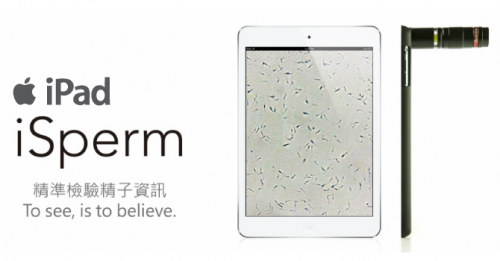- Home
- Medical news & Guidelines
- Anesthesiology
- Cardiology and CTVS
- Critical Care
- Dentistry
- Dermatology
- Diabetes and Endocrinology
- ENT
- Gastroenterology
- Medicine
- Nephrology
- Neurology
- Obstretics-Gynaecology
- Oncology
- Ophthalmology
- Orthopaedics
- Pediatrics-Neonatology
- Psychiatry
- Pulmonology
- Radiology
- Surgery
- Urology
- Laboratory Medicine
- Diet
- Nursing
- Paramedical
- Physiotherapy
- Health news
- Fact Check
- Bone Health Fact Check
- Brain Health Fact Check
- Cancer Related Fact Check
- Child Care Fact Check
- Dental and oral health fact check
- Diabetes and metabolic health fact check
- Diet and Nutrition Fact Check
- Eye and ENT Care Fact Check
- Fitness fact check
- Gut health fact check
- Heart health fact check
- Kidney health fact check
- Medical education fact check
- Men's health fact check
- Respiratory fact check
- Skin and hair care fact check
- Vaccine and Immunization fact check
- Women's health fact check
- AYUSH
- State News
- Andaman and Nicobar Islands
- Andhra Pradesh
- Arunachal Pradesh
- Assam
- Bihar
- Chandigarh
- Chattisgarh
- Dadra and Nagar Haveli
- Daman and Diu
- Delhi
- Goa
- Gujarat
- Haryana
- Himachal Pradesh
- Jammu & Kashmir
- Jharkhand
- Karnataka
- Kerala
- Ladakh
- Lakshadweep
- Madhya Pradesh
- Maharashtra
- Manipur
- Meghalaya
- Mizoram
- Nagaland
- Odisha
- Puducherry
- Punjab
- Rajasthan
- Sikkim
- Tamil Nadu
- Telangana
- Tripura
- Uttar Pradesh
- Uttrakhand
- West Bengal
- Medical Education
- Industry
Check out iSperm- digital DIY fertility testing

iSperm was released commercially last August and has sold nearly 200 sets to farms around the world.
Call home, check your email, count your sperm: Taiwanese start-up Aidmics is hoping to cash in on the $40 billion global human fertility market with an iPad compatible gadget it calls iSperm.
Aidmics initially developed the product to help livestock farmers, but founder Agean Lin now plans to seek US Food and Drug Administration approval next year to expand its use to men.
"In the US, one out of every six couples has trouble conceiving," Lin, 35, told Reuters. Investment advisory Harris Williams estimates the global fertility market to be worth as much as $40 billion.
iSperm was released commercially last August and has sold nearly 200 sets to farms around the world. It isn't the first at-home sperm tester but the only one that offers instant fertility measurements combined with live visuals of the sperm.
Lin said he aims to price the iSperm device between $100 and $200, a fraction of the cost of the commercial version.
The technology is simple: a tiny microscope enlarges the contents of a few drops of semen inside a pipette, lit by a backlight. The light beams the moving image to the iPad camera, and algorithms then analyse the sample for total sperm count and motility, or how fast sperm can swim.
Sam Wang, manager of a livestock farm in central Taiwan, is a convert. "Our pregnancy success rate increased by 20 percent after we started using this gadget," said Wang, who uses the device to measure the fertility of his boars.
"In the past, we had to use huge, expensive microscopes and physically count each sperm one-by-one," he said.
Call home, check your email, count your sperm: Taiwanese start-up Aidmics is hoping to cash in on the $40 billion global human fertility market with an iPad compatible gadget it calls iSperm.
Aidmics initially developed the product to help livestock farmers, but founder Agean Lin now plans to seek US Food and Drug Administration approval next year to expand its use to men.
"In the US, one out of every six couples has trouble conceiving," Lin, 35, told Reuters. Investment advisory Harris Williams estimates the global fertility market to be worth as much as $40 billion.
iSperm was released commercially last August and has sold nearly 200 sets to farms around the world. It isn't the first at-home sperm tester but the only one that offers instant fertility measurements combined with live visuals of the sperm.
Lin said he aims to price the iSperm device between $100 and $200, a fraction of the cost of the commercial version.
The technology is simple: a tiny microscope enlarges the contents of a few drops of semen inside a pipette, lit by a backlight. The light beams the moving image to the iPad camera, and algorithms then analyse the sample for total sperm count and motility, or how fast sperm can swim.
Sam Wang, manager of a livestock farm in central Taiwan, is a convert. "Our pregnancy success rate increased by 20 percent after we started using this gadget," said Wang, who uses the device to measure the fertility of his boars.
"In the past, we had to use huge, expensive microscopes and physically count each sperm one-by-one," he said.
Meghna A Singhania is the founder and Editor-in-Chief at Medical Dialogues. An Economics graduate from Delhi University and a post graduate from London School of Economics and Political Science, her key research interest lies in health economics, and policy making in health and medical sector in the country. She is a member of the Association of Healthcare Journalists. She can be contacted at meghna@medicaldialogues.in. Contact no. 011-43720751
Next Story


